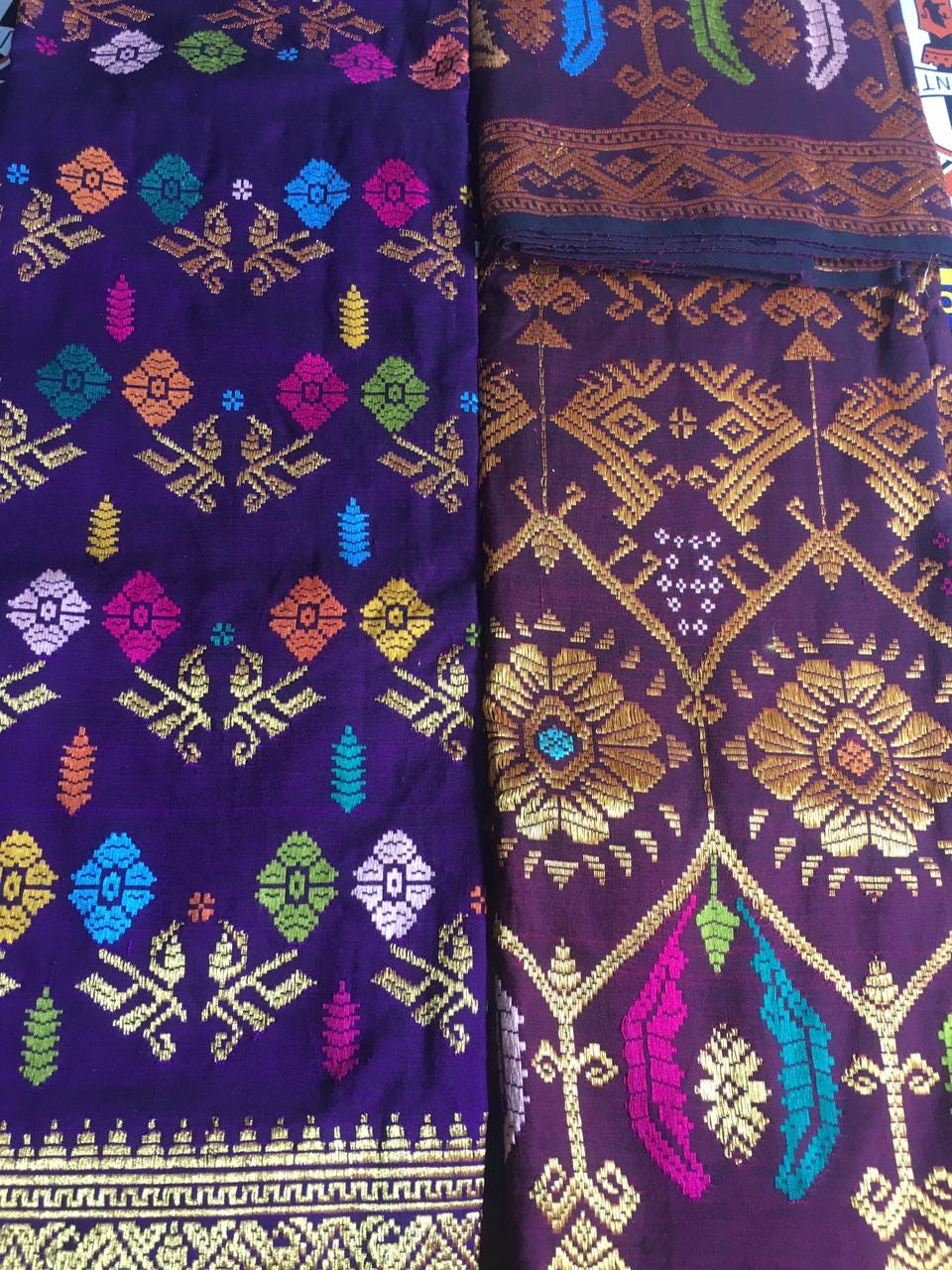During covid lockdown, after finishing War and Peace and cooking a shit-ton of paella with fluffy pinches of saffron and whipping up sourdough pancakes and then my sourdough mix somehow failing to thrive after jars and jars of it took over my refrigerator, I saw an ad in a Facebook group for Balinese classes. I messaged Kadek Rispintari, the glowing young teacher with her black hair pulled back tidily in a bun and wearing the traditional kebaya and sarong, and asked her if she could teach me Balinese on Zoom. Learning Balinese outside of Bali is difficult, learning resources are scarce, and it’s really hard to learn a language out-of-context that has different levels depending on caste of speaker and listener. But, I had a lot of time on my hands and decided to try.
At the start of the first class, it turned out Kadek hadn’t actually used Zoom before, but she did regularly use WhatsApp, so we proceeded with class on that, mobile-to-mobile, video-calling. In between her drilling me on the numbers or asking what I’d eaten that day, she’d walk outside her parents’ home in Kintamani, showing me blossoms of frangipani that I could practically smell, strolling past clucking chickens. Kind of a virtual reality Bali for me from my couch in Mid-City Los Angeles. We agreed to use the middle (madya) level of Balinese, which is more polite than low Balinese (kepara), but not as rarefied as high Balinese (halus). So for example, I could use it to shop in a market where the sellers are strangers to me, and be polite enough. I would say Punapi gatra? (madya or halus) to mean “how are you?” rather than Ken ken kabare, with which sudras (the common caste which 93% of Balinese people belong to), would typically greet each other.
But why aren’t you taking a class with Pak Gus? demanded my friend Deborah, an American expat living in Ubud with around 65 rescue cats and dogs.
Pak Gus, a member of the royal family whose great-grandfather was a famous healer, had been an Indonesian teacher for over 30 years and is a great explainer of Balinese culture, from traditional to modern. Turned out Pak Gus, too, now was offering remote language class. And he actually did use Zoom.
I decided to study Indonesian with him. I decided not to tell him I was studying Balinese at all, since he is high caste (brahmana) and I was worried I would offend him with unsuitable vocabulary. Being a long-term teacher of foreigners in Bali, Pak Gus probably wouldn’t actually get offended at language mistakes, but we kept it to Indonesian.
He grew medicinal plants in his garden, and right before covid had offered an AirBnb Experience for travelers to come to his home for a day and learn about the various plants and their healing properties. Cinnamon leaves for stomach ailments, turmeric for joint problems, and so on. Curious, I searched for AirBnb Experiences in Bali, and people all over the island were offering cooking lessons in their homes, traditional massage, batik-making, treks in mountain villages, silver-jewelry-making classes, and waterfall tours. There’s even Being Balinese People A Day and Bali Famous Insta-Spot Tour.
When I was first in Bali, in 1990, you found a waterfall tour guide by simply walking on the beach as a bule (a term originally used to refer to a white buffalo), and there’d be a guy with long hair and a scanty mustache and a Guns-and-Roses t-shirt with the sleeves cut off repeating “waterfall” or “hot springs” in English, and you’d nod and bargain and then jump on the back of his motorcycle.
At one of our first classes, Pak Gus told me about the new slang word popular with Indonesian youth, “otewe”, which comes from the English texting term OTW. And yes, it means the same thing. The latest term for “modern times” is jaman new.
During covid, when tourism and thus income dried up dramatically on Bali, a young woman from Buleleng reached out to me to help her set up a GoFundMe. She was aware of GoFundMe, but couldn’t connect her local bank account. Before covid, she had a decent job as a manager at a five-star hotel in Sanur, but now she and most people she knew were out of work. She contacted her friends around the world to donate, and I would wire her the money raised. She sent me photos of herself delivering 25-kilo sacks of rice she bought for her neighbors as they beamed broadly on their porches.
Another woman I knew, Ketut Sudiarsini, started selling risoles stuffed with carrot, potatoes and shredded chicken which she featured on her Facebook page (delivery included), another posted photos of piles of spiky fresh jackfruit for sale, someone else was showcasing contemporary kebayas she designed, and a banci I knew grew her “drag queen and sexy dancer entertainment” business through Instagram as well as on Tiktok and Bigo by streaming video of gorgeous Balinese drag queens dancing, pursing their lips, smoothing their wigs and perfecting their makeup.
My Balinese teacher Kadek told me her boyfriend’s mother handwove traditional songket cloth, and began sending me videos of her weaving, and the cloth was beautiful and so I bought two pieces which arrived in less than a week through DHL. When I opened the sealed plastic the cloth was wrapped in, a humid rush of tropical air puffed out into my living room, worlds intermingling.
When I first was in Bali, once I spent most of a night at a shadow puppet show, where a coconut oil lamp flickered behind a cloth screen and shadows flitted about warring and joking and loving to the metallic and mesmerizing sound of gamelan, telling tales of the Mahabharata, narrated and controlled by a dalang. Most of the villagers sat crosslegged, entranced, tossing peanut shells, and little boys walked around selling more peanuts wrapped in cones made from newspaper. If you crept around to the other side of the screen, you could see the intricately painted side of the puppets, showing another side to reality. In Hindu tradition, the Sanskrit term māyā means illusion, or the sense that this reality is merely a kind of sandiwara — a drama, not really real though it feels real — “the powerful force that creates the cosmic illusion that the phenomenal world is real…to say that the universe is an illusion (māyā) is not to say that it is unreal; it is to say, instead, that it is not what it seems to be, that it is something constantly being made.”[1] One could say that the concept of a metaverse began with Hinduism — even the word avatar comes from the Sanskrit avatara, the incarnation of a deity on Earth.
Now, Indonesians are, like the rest of us, entranced by a different kind of screen.
According to Think With Google, “Indonesia's new internet user growth rate is the fastest in the world. Smartphone adoption has tripled in the last five years, thanks to cheaper and faster broadband infrastructure and the widespread affordability of 4G phones. There are 156 million smartphone owners, making up 60% of the total population. This has led to a boom in mobile commerce as well as increased activity, funding and interest in digital start-ups.”
Where once an old woman with a basket on her head swayed around the village, exchanging local gossip and selling you fresh tempe and kangkung, or a young boy would run to the local warung for a few rupiah to buy you a packet of Rinso or a bar of soap, now everyone orders deliveries online, orders rides through Gojek, purchases laptop batteries on Shopee. Google Translate offers Indonesian and Javanese (though not Balinese; how can a translation tool account for the level of the person the speech is intended for?) Digital nomads from around the world work from places like Hubud and live in villas with swimming pools in Sanur. Facebook and Google have opened up offices in Jakarta, and have invested in local infrastructure. YouTube reaches more than 100 million Indonesians every month.
The digital economy is booming in Southeast Asia. “According to the latest SEA e-Conomy report by Google, Temasek and Bain, the region is set to reach $200 billion in total transaction value over 2022, which marks a 20% increase from 2021. Over 20 million new internet users came online in 2022, bringing the total number of users to 460 million, while consumer adoption of e-commerce, food delivery and financial payments has remained strong…E-commerce will be the biggest growth driver of the digital economy, spurred by online shopping. It is projected to grow from US$129 billion in 2022 to US$211 billion in 2025.”
And now, the place that has long harbored a philosophical concept of the metaverse is spawning the kind made of bits and bytes.
According to Coindesk, in 2022 the government announced “…it was moving its capital city from Jakarta on the island of Java to Balikpapan on the island of Kalimantan. To complement this bold move, the government announced it will also create a metaverse to allow its citizens to engage with government officials without having to spend money on flights and accommodation back and forth to the new capital city. Furthermore, this metaverse will be used to boost the economic prospects of the disparate regions of the country. Each of these regions has its own economic makeup, with different agriculture, mining, handicrafts, foods and culture. Each region will have its own metaverse, where micro, small and medium- sized businesses will be promoted regionally, nationally and globally as well.”
And PT Telkom Indonesia recently launched metaNesia, a virtual world meant to help Southeast Asia’s largest economy adapt to the fast-changing online landscape frequented by its young population.
Indonesian State-Owned Enterprises Minister Erick Thohir said in a statement:
“Don’t let other countries create a new world with their own payment system, while the market remains in Indonesia. Then we will regret it.”
New worlds, constantly being made.
Cool Stuff to Check Out:
Bali: Sekala & Niskala: Essays on Religion, Ritual, and Art
Balinese Shadow Puppet Show in Ubud (video)
Managing Turbulent Hearts: A Balinese Formula for Living
The Act of Killing by Joshua Oppenheimer
The Wayang Puppet Theater (video)
This Earth of Mankind by Pramoedya Ananta Toer
[1]Maya, Encyclopedia Brittanica









Just got this from my lovely brother Neal - JIS and Harvard Team Up to Bring CS50x to Indonesia: https://indonesiaexpat.id/education/education-ministry-jakarta-intercultural-school-and-harvard-team-up-to-bring-cs50x-to-indonesia/. If you haven't experienced David Malan's amazing teaching yet, you should! Glad he is bringing his excellent intro computer science class to Indonesia.